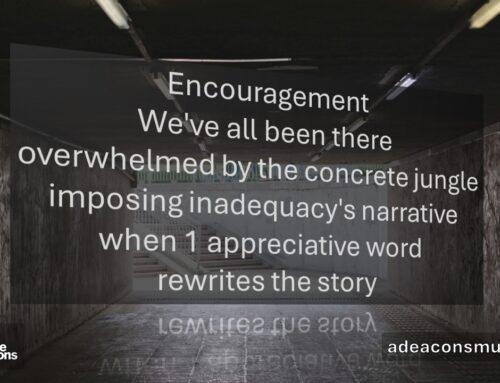Yesterday we talked about consultation and culture. These were very helpful and important conversations. They highlight much that connects with how we have arrived in this place since February of this year, which our Chair of Finance helpfully walked through in her historic recap this morning. When we use the word culture, it often suggests meanings and nuances that require assumptions. As we consider the STU Covenant and its ratification, I would like to make explicit my understanding of culture regarding culture and consultation that we discussed yesterday.
In order to move our conversation forward, I want to continue to use the metaphor that was used yesterday, which I found very helpful: domestic and foreign policy. When we talk about consultation and the kind of culture we would like to nurture, I have found that framing this as independent or inter-dependent is beneficial.
A culture that understands consultation through the lens of independence often preferences the internal community over external relationships. To borrow from the metaphor of domestic policy, we can see this lived out well in the global institutions that have developed since the end of World War II. To focus on just one current international body, let’s consider COP26, whose gathering of representatives from various countries occurred this past November.
COP26 is a gathering of global counties, which arrive having consulted domestically. This gathering is informed by domestic policy from a place of negotiation, ultimatum, and, at the extreme, unilateral decision-making. Coming together at COP26 is predicated on shared values, in this case, grave concern about climate change. Though this value unites international partners, CO26 often proves ineffective at establishing global commitment, let alone attendance. Domestic consultation often shapes foreign policy that is Machiavellian in nature and often only leads to agreement when the parties involved are able to meet their shared needs on a quid pro quo basis: in other words, a favor or advantage granted or expected in return for something.
Domestic policy fosters a consultation culture that inevitably leads to tensions in external relationships as trust with foreign partners is always tentative. The closer the shared values, admittedly, means that certain institutions can be resilient. Yet as we have seen in the last 5+ years of foreign relations, the shared values in such organization as the UN, NATO, and NAFTA have come under explicit pressure when a member uses ultimatums and unilateral decision-making based on domestic considerations: this is sometimes understood as nativism, populism, or nationalism.
I believe this independence culture has been part of the STU and each of its partners in the past. We certainly have shared values and commitments. We have also made decisions that were experienced as ultimatums and, in some cases, were unilateral in nature. Much has changed since that remembered history. I believe, however, that the STU Covenant and its ratification point to a culture of not independence but that embraces interdependence. I would even offer that this movement toward interdependence is part of our unfolding commitment to letting go of our colonial settler past.
If COP26 is an example of the challenges of independent domestic policy, I would offer that the European Union’s climate commitments, which are the most progressive and aggressive on the planet, highlight well what a culture of interdependent domestic consultation can look like. As opposed to COP26 where competing domestic interests make agreement and adherence challenging, the EU has been able to identify, considering its size and breadth of responsibility, and establish targets for half a billion people based not only on shared values, but also on internal, domestic, recognition that collectively more can be done than any one individual country can do.
A culture of interdependent internal consultation is about being able to bring challenges, concerns, and affirmation to partners with an expectation of not only being heard, but also collectively innovating ways to support one another in an ongoing and iterative process. I believe this culture of interdependence is what lies at the heart of the STU Covenant and the ratification we are considering. Possible ratification does not deny that there will be challenges or awkwardness. It makes space to review continually and update the Covenant as a living document not through ultimatums and unilateral decision-making, but by collectively engaging with one another to strengthen a union, as opposed to an alliance dependent on quid pro quo. This strengthening relies upon internal consultation that names what needs to be named with the trust that more can be done collectively than individually.
The STU Covenant, in its two years and in the last six months, particularly, has generated amazing results. It has demonstrated how interdependence fosters the very things that our strategic plan outlines in regard to partnerships–partnerships that our Finance Chair’s historic recap highlighted were part of the strategic plan and have been amplified by the crisis that we have heard about throughout the Finance Committee’s presentation.
The Covenant has been a key resource to address the challenges Wabash raised about our Accreditation Standards. It has served well for partners who have also wrestled with holding onto a culture of independence or nurturing an interdependent one. The Covenant, internally, has been shared broadly with staff, faculty, and the governance body. Nowhere has there been a flag or concern, which has resulted in halting the unfolding closer relationship. There have been challenges and these have been helpful developments to remind us that a covenant is a living document.
The consultations that have occurred so far have generated amazing ideas that will make the Covenant stronger. These ideas and input–in an interdependent culture–means we will bring them to our partners to collectively explore and implement. This shared commitment, captured in and requiring further building out in the Covenant, will ensure that this living document constantly honours our particularities, while strengthening our generality.
I believe that there are many other reasons why this should be ratified but let me end with this. Ratification is simply a moment, a choice, that marks a milestone at which we have arrived. This milestone ensures that the work done so far is not only marked, but also held up as we move toward the unfolding work of academic, administrative, and governance alignment. There will be ongoing and unfolding consultations, which I suggest become an annual process of internal reflection and review amongst staff, faculty, governance bodies, alum, and students. It will be our responsibility to frame these reviews as a commitment to the interdependence the STU Covenant captures, which has already proven fruitful and which we have staked a great deal upon since February of this year.









Your reflections are most welcome!